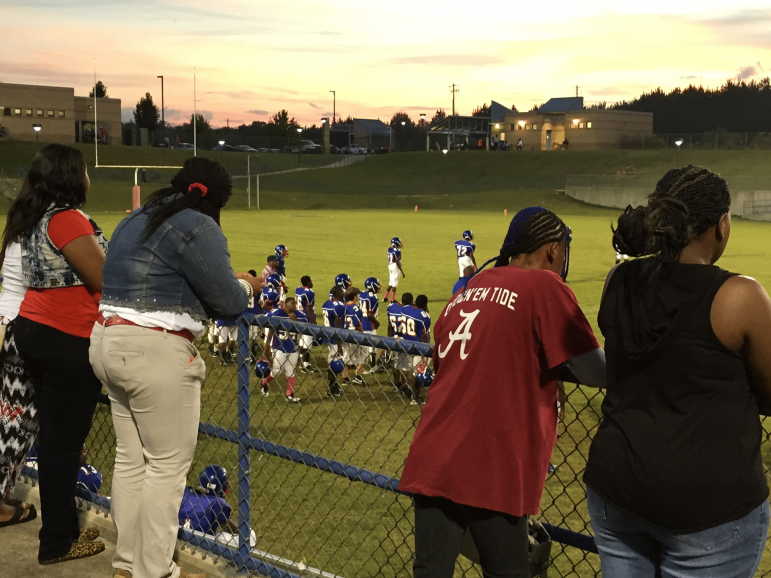Can you imagine a world with no gender divisions in sports? University of Alabama at Birmingham sociologist Adrienne Milner can. Not only that — she wants to help make it happen. Along with University of Miami professor Dr. Jomills Henry Braddock II, she’s written a new book called “Sex Segregation in Sports: Why Separate Is Not Equal.” WBHM’s Dan Carsen caught up with her to ask what else she hopes to accomplish, and why.
Listen to the five-minute on-air version above. Key interview excerpts and a web-only extended version are below.
The Main Argument
“Similar to racial segregation, sex segregation denotes the inferiority of women. Until women are allowed to play in integrated contexts and reach their full potential as athletes and people, we will never have equality in sports and in the broader society.”
Like Race, Sex Isn’t “Real”
“We look at race as a social construction. It is not genetic, it is not biological, and we believe the same is [true] for sex … The male-female dichotomy doesn’t cover everyone, right? We have trans people, intersex people.”
You Can’t Actually Have Football in Your DNA
“There is no ‘football gene’ … And you don’t play football, you don’t play any sport with your genitalia. So there’s no reason to separate people, and we learned with Brown versus Board of Ed that separate can never be equal.”
A (Very Good) Example from the NBA
“Muscle [mass] is not the be-all-and-end-all of sports ability. Look at someone like [recent NBA MVP] Steph Curry, who is small for an NBA player …”
Even If…
“If women [were] always smaller than men, they could still have positions on football teams as kickers. And [in] other sports like diving, where we would maybe look at being smaller as being an advantage, women might excel.”
Why Is This Important?
“Sports show the main problems of other aspects of society … They’re also very beneficial in cutting down obesity, heart disease, [domestic] abuse, and eating disorders.”
Click below for the web-exclusive 17-minute interview, which includes thoughts on cheerleading, men competing on the balance beam (ouch), Milner’s own experiences as an athlete, and the book’s recommendations for making sports more equitable:

